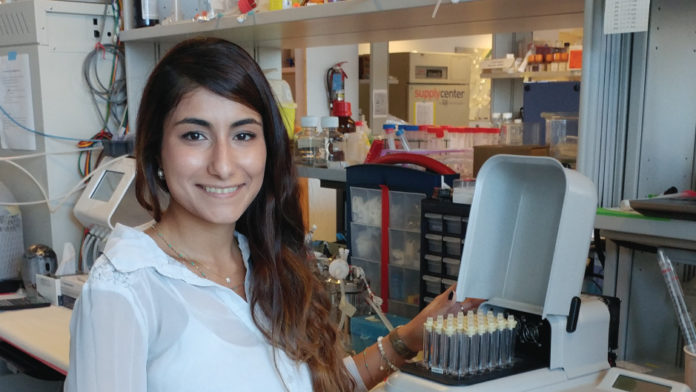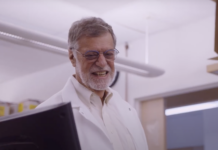Nika Shakiba is a PhD candidate at the University of Toronto in Prof. Peter Zandstra’s lab where she is studying induced pluripotent stem cells. We asked her everything from what she is reading to what advice she has for young researchers in hopes of giving you a better understanding of what goes on outside the lab for a Canadian graduate student.
What do you like most about being a scientist?
Scientists spend their time looking at the world around them and asking “why?”. By seeking answers to our questions, we push the boundaries of human knowledge and technology. That’s a unique position to be in as it enables us to have profound impact on quality of life while also connecting with our innate curiosity — something that stirs inside all of us from a young age.
What advice would you give young researchers?
My experience has shown me the impact that good mentors can have on the growth and trajectory of trainees. I have been lucky enough to have fantastic mentors, like my PhD supervisor Dr. Peter Zandstra, that continue to challenge me. So my advice is twofold: find good mentors and be a good mentor by empowering future generations of researchers. Above all, don’t lose sight of your passion for science and your motivations for doing research in the first place. I find that communicating my love of science through outreach helps me keep this passion alive.
What are you reading right now?
One of my latest reads has been the book “Moonwalking with Einstein” by Joshua Foer, which takes readers on a journey into the world of mental athletics. Foer uses investigative journalism to uncover the tricks that mental athletes use to memorize large amounts of information. What I love about this book is that it provides a great example of the power of knowledge: by knowing that the human brain’s main strength is visual memory, mental athletes can remember exorbitant amounts of information, like the exact order of a deck (or more!) of playing cards.
What do you like to do for fun?
In my free time, I like to explore Toronto’s amazing food landscape with friends and enjoy finding new types of cuisines from around the world.
If you could do any profession other than your own what would it be?
I’ve always admired the precision that goes into gourmet cooking. Though my cooking skills are not remotely up to par, had I not been a scientist I think I would have loved to be a chef. In fact, I think cooking is as much a science as it is an art, requiring mastery of and an awareness for key concepts. Gourmet chefs are at the cutting edge of their field and impact an integral component of our lives, which is the eating experience. I really admire their rigour and creativity as well as their lifelong journey towards mastering their craft.
Interested in learning more about Nika’s work? Check out the stem cell video on our blog.











































